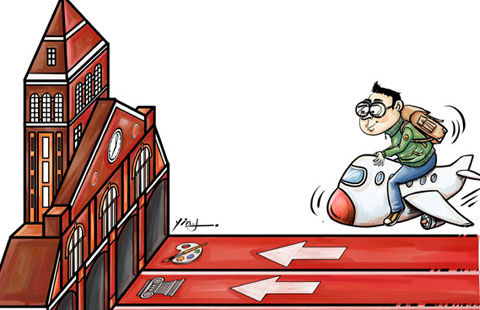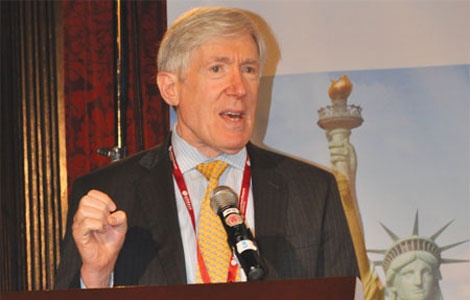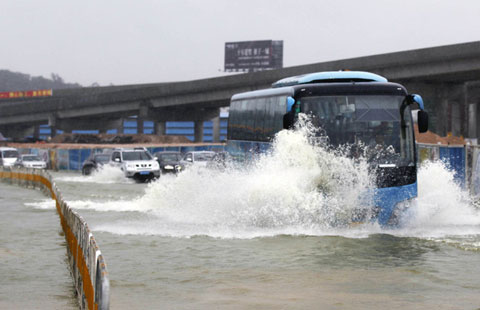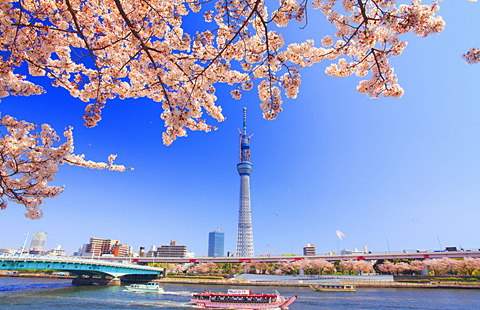The city that's not forbidden, just avoided
Updated: 2014-05-13 07:26
By Zhang Yuchen (China Daily)
|
||||||||
 |
The airborne pollution that has shrouded Beijing in recent years and made headlines worldwide has long been a major concern for the city's residents, but now the problem has taken on an international flavor as foreign visitors shun the Chinese capital.
|
TOP 10 TOURIST DESTINATIONS IN CHINA BY GOOD AIR QUALITY • Sanya in Hainan province • Xiamen in Fujian province • Lijiang, Xishuangbanna, • Dali and Kunming in Yunnan province • Guilin in the Guangxi Zhuang autonomous region • Guiyang in Guizhou province • Mount Changbai in Jilin province • Mount Huangshan in Anhui province |
In April, the China National Tourism Administration published a report showing that in the first quarter of the year, 5.8 million foreign tourists visited China, compared with 6.04 million in the same period in 2013. However, only 800,000 visited Beijing, a fall of 10 percent from the first quarter of last year, which resulted in the city's total foreign exchange earnings falling to $23 billion, a year-on-year decline of 1.7 percent.
Moreover, many of those visitors were short-stay guests, taking advantage of a relaxation of the visa requirements, which allows "transit" visitors, those with tickets to travel on to other countries, to spend 72 hours in China without having a visa.
Although visitor numbers have been declining steadily since 2009, the tipping point came in 2012, when 5 million tourists visited Beijing, a fall of 3.76 percent from 2011, according to the Chinese Tourism Academy. Visitors are also becoming more critical of the services on offer. The city's tourist satisfaction index stood at 75.28 in the second quarter of 2013, a marked decline from the figure of 80.97 recorded in the first quarter of the same year.
While experts attributed Beijing's decline to several factors, including food safety scandals, the global economic downturn, the strength of the yuan versus other currencies, and poor management and use of historic sites, pollution stood head and shoulders above all other issues.
Multinational companies have reported reluctance among senior staff to relocate to China - one of the world's biggest and most promising markets - because of health concerns. Now, it seems, an increasing number of tourists are also voting with their feet.
"I believe that air pollution is the most important and visible issue that influences people's choices to move to or visit the city, which is a pity. Beijing has a lot of potential and looks beautiful on clean-air days when you can see the mountains in the background," said Paul Procee, lead urban specialist at the World Bank in Beijing.
According to Wu Bihu, director of the Research Center for Tourism Development and Planning at Peking University, the tourist industry in the city has no alternative but to act, and fast: "Beijing can't wait for the air quality to improve before attempting to raise standards in the tourist industry. The city has to promote its tourist attractions right now because cleaning up the air is a long-term issue."
Wu's call is unlikely to fall on deaf ears because the shortfall in visitor numbers has sounded alarm bells within the industry. "In recent years, the number of foreigners traveling to China has definitely declined, resulting in the stagnation or decline of inbound tourism," said Han Yufeng, general manager of the Department of Inbound Tourism at China International Travel Service Ltd.
Economic downturn
The decline comes against a backdrop of financial uncertainty caused by the global economic downturn. People are either unable to afford a vacation overseas or are looking to get more bang for their buck by visiting countries where they can be sure of relatively low prices and clean air.
The effects of the financial crisis have also been exacerbated by a 30 percent rise in the strength of the yuan against the US dollar, which makes traveling within China a less attractive proposition and far more expensive than neighboring countries such as Vietnam, Cambodia and Myanmar, which have taken up the slack and attracted a large number of tourists who would otherwise have visited China, according to Han.
As a result, high-end tourism-related businesses are feeling the pinch. One entrepreneur, who declined to be named, said he's planning to close his stores that sell expensive jade souvenirs - formerly a thriving trade - at a five-star hotel and Beijing Capital International Airport because of the sharp decline in revenue.
Most Viewed
Editor's Picks

|

|

|

|

|

|
Today's Top News
Experts: Currency no big deal
Alibaba names ex-Treasury official as communications chief
9 Chinese Americans get medals
Chinese cut big African air deal
China's military brass visits US this week
Tuniu Corp's IPO on Nasdaq raises $72m
US SEC will hear appeal on "Big 4"
Explosion of riches
US Weekly

|

|














